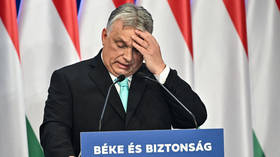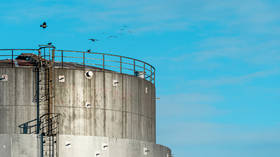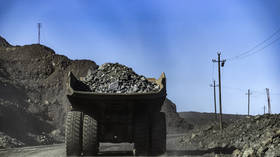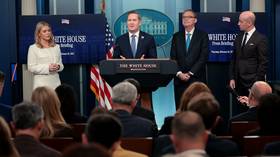Hungary reveals cost of anti-Russia sanctions

Sanctions introduced by the EU against Russia over its military operation in Ukraine have cost Hungary’s economy €10 billion, but have failed to stop the conflict, Prime Minister Viktor Orban said on Saturday.
The anti-Russia measures imposed nearly a year ago have had a devastating impact on Budapest, by sending energy prices soaring, and raising costs throughout the economy, Orban stated in his annual state of the nation speech.
“Sanctions have pulled four trillion forints (over €10 billion) out of the pockets of Hungarians,” the PM said, noting that the country’s government, corporate sector and households saw energy prices skyrocket in 2022.
According to Orban, the punitive measures “were supposed to hit Russia, but hit Europe.” Leaders of the bloc were seeking to end to the conflict in Ukraine, but “a year has passed, and this has not happened.”
“We did not deprive Russia of resources, we gave Russia even more money, and Russian energy supplies [in monetary terms] grew by 70%,” he said.
The Hungarian leader added that with sharply increased energy costs, EU nations have been struggling to rein in rampant inflation.
Orban is a vocal critic of the bloc’s approach to the conflict in Ukraine, and has repeatedly said that sanctions are hurting the EU more than they hurt Russia.
Hungary’s economy is heavily dependent on Russian energy, and Budapest has resisted EU plans to completely ban oil and gas imports from the sanctions-hit nation. After tense negotiations, Budapest previously received several exemptions from the bloc-wide restrictions on purchases of Russian fossil fuels.
For more stories on economy & finance visit RT's business section














